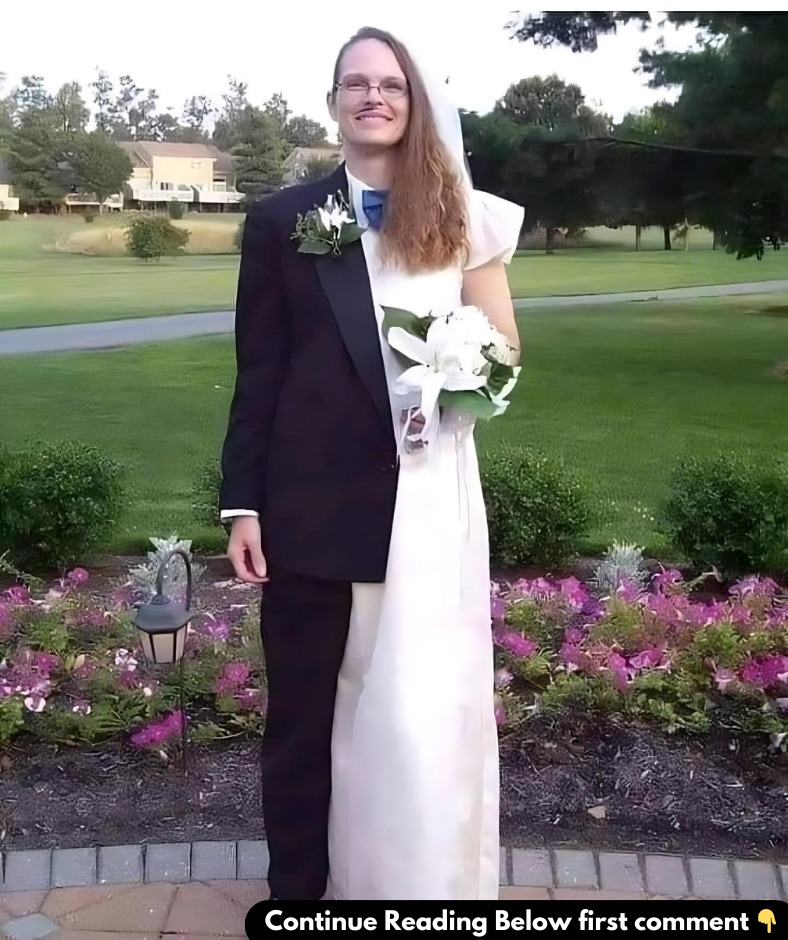In a world that places great emphasis on romantic relationships, Antoine Cheval, a man from France, chose a different path—he decided to marry himself. After experiencing numerous rejections and failed romantic endeavors, Antoine embraced the concept of “sologamy,” the act of marrying oneself. This unconventional decision has sparked conversations about self-love, personal empowerment, and challenging societal expectations. Let’s explore Antoine’s story and how it reflects a growing movement towards self-fulfillment.

Who is Antoine Cheval?
Antoine Cheval made headlines by deciding to marry himself after a series of unreciprocated romantic pursuits. Faced with heartbreak and repeated rejection, Antoine began to reflect deeply on his self-worth. Rather than letting these disappointments define him, he chose to commit to self-love. This commitment culminated in a unique self-marriage ceremony, where Antoine, standing alone at the altar, made vows to himself. The ceremony included friends, family, and even a reception, mirroring the structure of a traditional wedding, but with one significant twist—he was the sole participant.
Antoine’s decision was not only a personal one but also a statement challenging conventional notions of love and partnership. His story has resonated with many, as it highlights the importance of self-appreciation and finding happiness independently of a romantic partner.
Understanding Sologamy: What Does It Mean to Marry Yourself?
Sologamy, or self-marriage, is a symbolic act where individuals marry themselves. Though it is not legally binding, it serves as a powerful gesture of self-commitment and self-respect. For those who embrace it, sologamy represents independence, personal growth, and a deeper commitment to their own happiness. Unlike traditional marriages, which often come with legal and societal obligations, sologamy focuses on celebrating one’s journey toward self-love.
Critics argue that self-marriage lacks the legal and societal recognition of conventional marriage. However, proponents see it as a bold affirmation of self-worth, allowing individuals to validate themselves without seeking approval from others. For Antoine Cheval, this act was about embracing who he is and finding fulfillment on his own terms.
The Self-Marriage Ceremony: A Unique Celebration
Self-marriage ceremonies often resemble traditional weddings, complete with vows, rings, and even guests. For many, this ceremony is a deeply personal moment of self-reflection and celebration. Antoine Cheval’s self-marriage was no different—he invited friends and family to witness his commitment to himself. The event included a symbolic exchange of vows, a reception, and a heartfelt celebration of his journey towards self-acceptance.
These ceremonies can vary greatly depending on the individual. Some people work with counselors or participate in self-reflection programs to prepare for this emotional commitment. The idea behind sologamy is to provide an opportunity for people to reflect on their past relationships, recognize their own strengths, and move forward with a renewed sense of self-confidence.
Notable Examples of Sologamy Worldwide
Antoine Cheval’s story is not an isolated case; sologamy has been gaining popularity around the world. In 2014, British photographer Sophie Tanner made headlines when she married herself in a public ceremony. By doing so, she declared her independence and celebrated her self-worth outside the context of a romantic relationship.
In 2017, Italian fitness trainer Laura Mesi chose to marry herself after going through a divorce. For Laura, this act was about reclaiming her identity and happiness, proving that she didn’t need a partner to feel complete. She described her self-marriage as empowering and liberating, allowing her to redefine her sense of self.
In India, Kshama Bindu broke new ground in 2022 by participating in one of the country’s first traditional self-marriage ceremonies. As a bisexual woman, Kshama wanted to experience the joy of being a bride without the need for a partner. Her ceremony, filled with customary rituals, was widely covered, emphasizing the value of embracing one’s identity and happiness.
Self-Love as a Path to Personal Empowerment
The rise of sologamy invites us to rethink traditional views on relationships and happiness. At its core, self-marriage is about self-acceptance, self-worth, and prioritizing one’s own happiness. It challenges the notion that fulfillment must come from being in a romantic relationship, instead encouraging individuals to foster a meaningful relationship with themselves first.
Antoine Cheval and others who have embraced sologamy demonstrate that self-love can be a powerful force for personal empowerment. By choosing to marry himself, Antoine sent a message that he could find contentment within himself, rather than seeking validation from others. This decision was both a celebration of his identity and a rejection of societal pressures to conform.
Why People Choose Self-Marriage
There are many reasons why individuals choose sologamy, but it often boils down to a desire for independence, healing, and personal growth. For some, it is a way to recover from past relationships or to celebrate a journey of self-discovery. Others see it as a way to resist the societal pressure to find a partner and instead focus on self-contentment.
In Antoine’s case, marrying himself was a response to the heartbreak and rejection he faced in previous relationships. By making this commitment, he chose to celebrate his worth and prioritize his happiness. His self-marriage was a statement that his life could be fulfilling and complete without the need for a traditional partner.
Embracing Self-Love in Modern Society
Antoine Cheval’s story serves as a reminder that love doesn’t always have to involve another person. By embracing sologamy, Antoine challenges the traditional ideals of happiness and fulfillment. His journey encourages others to focus on self-love, reminding us that personal contentment can be achieved from within.
The rise of self-marriage reflects a shift in modern attitudes toward relationships, where the focus is increasingly on personal growth and self-care. Sologamy offers an alternative perspective, showing that happiness and self-worth can be cultivated independently.
Conclusion: The Power of Self-Love
Antoine Cheval’s journey of self-marriage is a testament to the strength of self-love and personal empowerment. By choosing to marry himself, Antoine embraced his individuality and rejected the notion that happiness must come from a romantic partner. His story illustrates that sometimes, the key to fulfillment lies in recognizing one’s own worth and committing to a life of self-care.
In a world where romantic relationships are often seen as the pinnacle of happiness, sologamy offers a refreshing perspective on love. Antoine’s choice to marry himself is a powerful reminder that self-love is not only valid but also essential for a truly fulfilling life. Whether one agrees with sologamy or not, the message is clear: embracing self-love can lead to a richer, more meaningful existence.





